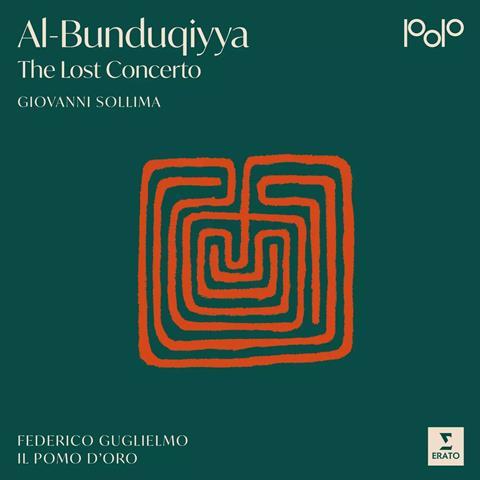Plenty of daring on display from an enterprising cellist–composer

The Strad Issue: March 2025
Description: Plenty of daring on display from an enterprising cellist–composer
Musicians: Giovanni Sollima (cello) Federico Guglielmo (violin) Il Pomo d’Oro
Works: Vivaldi: Concertos for violin and cello: F major RV544, A major RV546, B flat major RV547; Dorilla in Tempe RV709 – Sinfonia. Sollima: Moghul; Il concerto perduto (after Vivaldi RV787) Excerpts from works by Vivaldi, Tartini and Sollima with arrangements and improvisations by Sollima
Catalogue number: WARNER CLASSICS 5419791752
Cellist–composer Giovanni Sollima’s album demonstrates Vivaldi’s native Venice’s (‘Al-Bunduqiyya’ in Arabic) historical relationship with the eastern Mediterranean and Asia. Comprising works that cross cultures and eras, it includes original compositions by Vivaldi and Sollima, arrangements and improvisations.
Vivaldi’s three concertos for violin and cello, dispatched with unanimity, vitality and lyricism by Sollima and Federico Guglielmo, form the programme’s kernel. His Sinfonia RV709 highlights the neat ensemble playing of the modestly sized Il Pomo d’Oro, but the ‘lost concerto’ is essentially a free composition by Sollima, constructed around surviving remnants of a viola part of RV787 and other Vivaldi fragments. Guglielmo infuses the recitativo movement of Vivaldi’s ‘Grosso Mogul’ Concerto RV208 with Eastern seasoning aplenty in an especially dramatic account.
In The Family Tree, Sollima revels in reproducing its myriad avant-garde effects and bravura pyrotechnics above a recurring bass-line and builds the piece to an exhilarating conclusion. Also striking are his and the ever-versatile Guglielmo’s vivid evocations and energetic execution of traditional Albanian–Sicilian and Cypriot dances, along with his transcription of a Tartini violin sonata movement based on a gondolier’s song. He further demonstrates his free spirit in five brief solo cello improvisations, interspersed throughout his programme. The recordings have pleasing warmth and clarity.
ROBIN STOWELL











































No comments yet